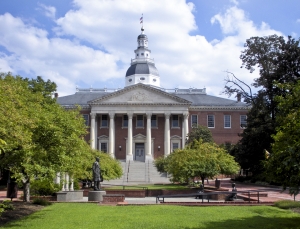 This year’s legislative session is well under way in Annapolis, and all signs point to the conclusion that legalized pot is still a pipedream in Maryland. The state made national and even global headlines in November for officially sanctioning same sex marriage and has been called one of the most liberal in the country. But when it comes to drug enforcement, and marijuana in particular, Maryland is a far cry from liberal. In fact, our great state is stricter than most when it comes to drug crimes and possible sentences. Possession of over ten grams of the drug still carries a one year jail sentence, and cops around the state are arresting large numbers of simple possession defendants. There are multiple reasons for the grim outlook on possible recreational and medical marijuana legalization, but the biggest reason comes from the top of the political food chain. Governor O’Malley has repeatedly threatened to veto any legalization bill that crosses his desk, and has shown no signs of backing down from this stance.
This year’s legislative session is well under way in Annapolis, and all signs point to the conclusion that legalized pot is still a pipedream in Maryland. The state made national and even global headlines in November for officially sanctioning same sex marriage and has been called one of the most liberal in the country. But when it comes to drug enforcement, and marijuana in particular, Maryland is a far cry from liberal. In fact, our great state is stricter than most when it comes to drug crimes and possible sentences. Possession of over ten grams of the drug still carries a one year jail sentence, and cops around the state are arresting large numbers of simple possession defendants. There are multiple reasons for the grim outlook on possible recreational and medical marijuana legalization, but the biggest reason comes from the top of the political food chain. Governor O’Malley has repeatedly threatened to veto any legalization bill that crosses his desk, and has shown no signs of backing down from this stance.
Other concerns stem from concern amongst legislators that the federal government would step in and begin prosecuting any legal state marijuana operations. The drug is still years away from federal legalization and the Justice Department has shown no signs of change on the issue either. But according to supporters for legalization, concerns over the federal government meddling in the state’s medical marijuana policy is unfounded and lacks precedent. There are very few cases around the country where the federal government has made an effort to corral medical use operations, and there is no evidence that the federal government is going to interfere with Colorado and Washington’s recreational use laws. Lately, it seems the federal government excuse is becoming more popular with politicians across the country that are reluctant to take a stance on legalization.
Continue reading →
 Criminal Defense Lawyer Blog
Criminal Defense Lawyer Blog


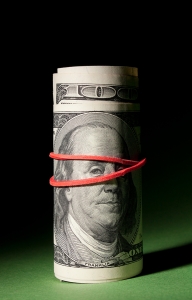 Federal law enforcement recently announced that a major drug ring in suburban Maryland has been busted up, and numerous arrests have been made. In total, 18 people were arrested in the bust, and as many as 15 have already been charged with conspiracy to distribute more than two thousand pounds of marijuana and various other drugs. The federal grand jury indictment included information, which led federal officers to believe that the Anne Arundel County drug ring distributed cocaine, prescription pills, steroids, as well as large amounts of pot. As many as 250 federal agents participated in multiple raids that reportedly resulted in the seizure of 30 cars, 60 pounds of marijuana, upwards of 300 thousand dollars cash, and multiple guns. The seizures are not even close to complete as the U.S. Justice Department is seeking the court’s approval to confiscate over 10 million dollars in cash, multiple real estate properties, bank accounts, cars, and business assets.
Federal law enforcement recently announced that a major drug ring in suburban Maryland has been busted up, and numerous arrests have been made. In total, 18 people were arrested in the bust, and as many as 15 have already been charged with conspiracy to distribute more than two thousand pounds of marijuana and various other drugs. The federal grand jury indictment included information, which led federal officers to believe that the Anne Arundel County drug ring distributed cocaine, prescription pills, steroids, as well as large amounts of pot. As many as 250 federal agents participated in multiple raids that reportedly resulted in the seizure of 30 cars, 60 pounds of marijuana, upwards of 300 thousand dollars cash, and multiple guns. The seizures are not even close to complete as the U.S. Justice Department is seeking the court’s approval to confiscate over 10 million dollars in cash, multiple real estate properties, bank accounts, cars, and business assets.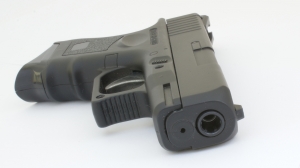 The Baltimore Police Department and the Mayor’s office has released it annual crime report, and the statistics are mixed as to whether 2012 was another step in the right direction. The city’s homicide rate rose for the first time in a few years, and this is a cause for concern from the police and the mayor’s office. In 2011 the city reported 197 murders, which is still a relatively high number considering the overall population. But last year this number actually rose ten percent to 217 murders, thus assuring that Baltimore will still be talked about with the likes of Detroit, Oakland, and St. Louis as one of the most violent cities in America. Although homicides were up it still may not be fair to lump our city in with the usual suspects of violent places. In fact, 2012 crime statistics of other violent crimes and certain property crimes show just the opposite.
The Baltimore Police Department and the Mayor’s office has released it annual crime report, and the statistics are mixed as to whether 2012 was another step in the right direction. The city’s homicide rate rose for the first time in a few years, and this is a cause for concern from the police and the mayor’s office. In 2011 the city reported 197 murders, which is still a relatively high number considering the overall population. But last year this number actually rose ten percent to 217 murders, thus assuring that Baltimore will still be talked about with the likes of Detroit, Oakland, and St. Louis as one of the most violent cities in America. Although homicides were up it still may not be fair to lump our city in with the usual suspects of violent places. In fact, 2012 crime statistics of other violent crimes and certain property crimes show just the opposite. Maryland lawmakers are set to begin the 2013 legislative session next week in Annapolis, and gun control is one topic on the minds of many representatives. State legislatures from all over the country will undoubtedly take a deep look into their respective gun laws following the Newtown, Connecticut tragedy, and Maryland is no exception. At least one representative, a democrat from Baltimore County, has already publically proposed a bill that would require active duty police officers to be deployed full time in all state public schools. There are currently school resources officers in many middle and high schools and a few elementary schools, but deploying these officers in public schools is not mandatory. School resource officers are sworn policemen and women that have arrest powers, and carry standard issue police firearms. The bill was submitted as emergency legislation, which means that if it passes it could go into effect as soon as February. It is obviously too early to tell if the bill will receive any opposition, but it seems as if the financial burden on local police jurisdictions would be the only obstacle to the bill’s passage.
Maryland lawmakers are set to begin the 2013 legislative session next week in Annapolis, and gun control is one topic on the minds of many representatives. State legislatures from all over the country will undoubtedly take a deep look into their respective gun laws following the Newtown, Connecticut tragedy, and Maryland is no exception. At least one representative, a democrat from Baltimore County, has already publically proposed a bill that would require active duty police officers to be deployed full time in all state public schools. There are currently school resources officers in many middle and high schools and a few elementary schools, but deploying these officers in public schools is not mandatory. School resource officers are sworn policemen and women that have arrest powers, and carry standard issue police firearms. The bill was submitted as emergency legislation, which means that if it passes it could go into effect as soon as February. It is obviously too early to tell if the bill will receive any opposition, but it seems as if the financial burden on local police jurisdictions would be the only obstacle to the bill’s passage.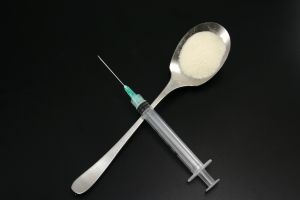 The entire state of Maryland has experienced an uptick in heroin use over the last couple years. But no city or county has seen such a dramatic rise as Ocean City. Law enforcement reported a 550 percent increase in heroin use in the city from 2011 to 2012. If the reports are accurate, more than 5 times as many people used the drug this year compared to last year. In response local cops, Worcester County Police, and Maryland State Police recently initiated a drug suppression operation entitled Operation Smackdown. A variety of drugs such as cocaine and marijuana were also targeted in the operation, but most of the arrests were for possession or sale of heroin.
The entire state of Maryland has experienced an uptick in heroin use over the last couple years. But no city or county has seen such a dramatic rise as Ocean City. Law enforcement reported a 550 percent increase in heroin use in the city from 2011 to 2012. If the reports are accurate, more than 5 times as many people used the drug this year compared to last year. In response local cops, Worcester County Police, and Maryland State Police recently initiated a drug suppression operation entitled Operation Smackdown. A variety of drugs such as cocaine and marijuana were also targeted in the operation, but most of the arrests were for possession or sale of heroin. The war on prescription drug abuse has been effective in decreasing the availability of commonly abused pills such as oxycodone and other narcotics. But as an unintended consequence, heroin use in Maryland has actually been on the rise. More people are using heroin, and state officials are reporting a significant jump in the number of deaths attributed to heroin overdoses in 2012. In fact, in the first half of 2012 heroin related overdoses increased 41 percent, with 205 deaths reported from January to July of this year compared to 145 in 2011 over the same time frame. There could be a wide variety of reasons for the jump in overdoses, which according to state officials signals a definite jump in use of the drug, but the leading factor is likely a recent crackdown on pill mills.
The war on prescription drug abuse has been effective in decreasing the availability of commonly abused pills such as oxycodone and other narcotics. But as an unintended consequence, heroin use in Maryland has actually been on the rise. More people are using heroin, and state officials are reporting a significant jump in the number of deaths attributed to heroin overdoses in 2012. In fact, in the first half of 2012 heroin related overdoses increased 41 percent, with 205 deaths reported from January to July of this year compared to 145 in 2011 over the same time frame. There could be a wide variety of reasons for the jump in overdoses, which according to state officials signals a definite jump in use of the drug, but the leading factor is likely a recent crackdown on pill mills. The Maryland Legislature is scheduled to begin its 2013 legislative session next month, and marijuana is one issue that is sure to be hotly debated. Medical marijuana supporters and personal use advocates alike hope that this year’s session makes more progress in the fight for decriminalization. Toward the end of last year’s legislative session, the head of the state’s department of health went on record saying that he would not support decriminalization as long as federal law continued to define pot as an illegal controlled substance. The department head cited concerns that his state employees could be subject to federal prosecution under the controlled substances act and there would be nothing the state could do to protect them. The head of any state agency has a duty to protect his or her employees, but the broader issue is also that state lawmakers want to protect their constituents as well. It would certainly not look good for Annapolis if Maryland citizens were being prosecuted federally for following a law that their own delegates supported and eventually passed. But supporters of marijuana decriminalization have hope that this year will be different based on two influential votes on this past Election Day.
The Maryland Legislature is scheduled to begin its 2013 legislative session next month, and marijuana is one issue that is sure to be hotly debated. Medical marijuana supporters and personal use advocates alike hope that this year’s session makes more progress in the fight for decriminalization. Toward the end of last year’s legislative session, the head of the state’s department of health went on record saying that he would not support decriminalization as long as federal law continued to define pot as an illegal controlled substance. The department head cited concerns that his state employees could be subject to federal prosecution under the controlled substances act and there would be nothing the state could do to protect them. The head of any state agency has a duty to protect his or her employees, but the broader issue is also that state lawmakers want to protect their constituents as well. It would certainly not look good for Annapolis if Maryland citizens were being prosecuted federally for following a law that their own delegates supported and eventually passed. But supporters of marijuana decriminalization have hope that this year will be different based on two influential votes on this past Election Day.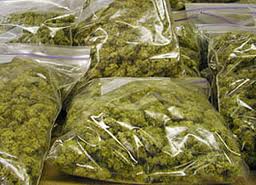 Various states have recently been modifying and in some cases eradicating criminal penalties for marijuana possession and manufacturing. As a result law enforcement has seen an uptick in shipping the drug from a state where it is legal to a state that has yet to join the legalization party. Despite recent modifications in the controlled dangerous substance laws, marijuana continues to be illegal under state law, and thus local and federal law enforcement have focused a great deal of attention on intercepting packaged drugs headed toward Maryland. Recently a large number of federal search warrants were unsealed in Baltimore, allowing the public to take a look inside the process and procedure of apprehending suspects that take delivery of packaged drugs.
Various states have recently been modifying and in some cases eradicating criminal penalties for marijuana possession and manufacturing. As a result law enforcement has seen an uptick in shipping the drug from a state where it is legal to a state that has yet to join the legalization party. Despite recent modifications in the controlled dangerous substance laws, marijuana continues to be illegal under state law, and thus local and federal law enforcement have focused a great deal of attention on intercepting packaged drugs headed toward Maryland. Recently a large number of federal search warrants were unsealed in Baltimore, allowing the public to take a look inside the process and procedure of apprehending suspects that take delivery of packaged drugs.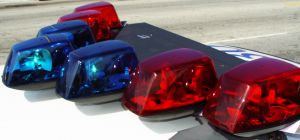 The Thanksgiving holiday week is one of America’s favorite times of the year. During the day we eat our turkey, play and watch football, and take advantage of all the Black Friday shopping sales. But the Thanksgiving week and weekend is also known as a popular nightlife time. In fact, the Wednesday before Thanksgiving is the single most popular bar night of the year, and the Friday and Saturday after are not far behind. And whenever there is a party, you can be sure that police are not far behind to come crash it. The Maryland State Police recently made an attempt to crash the holiday week party by ramping up patrols across the state’s highways. Police were specifically targeting the roads in and out of popular nightlife spots and conducted almost 9,000 traffic stops over the holiday weekend. Out of the 9,000 traffic stops, nearly 100 resulted in an arrest for DUI. Close to 60 people were arrested or cited with drug offenses by state troopers, and over 100 were arrested for other crimes. Police also reported that 3 guns were confiscated during the traffic stops.
The Thanksgiving holiday week is one of America’s favorite times of the year. During the day we eat our turkey, play and watch football, and take advantage of all the Black Friday shopping sales. But the Thanksgiving week and weekend is also known as a popular nightlife time. In fact, the Wednesday before Thanksgiving is the single most popular bar night of the year, and the Friday and Saturday after are not far behind. And whenever there is a party, you can be sure that police are not far behind to come crash it. The Maryland State Police recently made an attempt to crash the holiday week party by ramping up patrols across the state’s highways. Police were specifically targeting the roads in and out of popular nightlife spots and conducted almost 9,000 traffic stops over the holiday weekend. Out of the 9,000 traffic stops, nearly 100 resulted in an arrest for DUI. Close to 60 people were arrested or cited with drug offenses by state troopers, and over 100 were arrested for other crimes. Police also reported that 3 guns were confiscated during the traffic stops. It was like stealing candy from a baby. At least it was for the police officers who recently arrested a Dundalk man for possession of marijuana with intent to distribute. Early in the morning hours employees at a Pennsylvania gas station observed the man placing unidentified candy bars in his pockets. The employees called 911 and law enforcement began searching the immediate area for a man matching the description. The man was spotted within ten minutes by local cops, who detained the Maryland man. After confirming the identification of the candy bar thief, police officers arrested the man for shoplifting. Search incident to arrest revealed two candy bars worth a total of $3.58. It is unclear whether the candy bars were king size, or if the gas station simply charges almost two dollars per bar. Nonetheless, the man would have likely avoided a trip to the local jail had he only been found in possession of candy, but that was not the case.
It was like stealing candy from a baby. At least it was for the police officers who recently arrested a Dundalk man for possession of marijuana with intent to distribute. Early in the morning hours employees at a Pennsylvania gas station observed the man placing unidentified candy bars in his pockets. The employees called 911 and law enforcement began searching the immediate area for a man matching the description. The man was spotted within ten minutes by local cops, who detained the Maryland man. After confirming the identification of the candy bar thief, police officers arrested the man for shoplifting. Search incident to arrest revealed two candy bars worth a total of $3.58. It is unclear whether the candy bars were king size, or if the gas station simply charges almost two dollars per bar. Nonetheless, the man would have likely avoided a trip to the local jail had he only been found in possession of candy, but that was not the case.